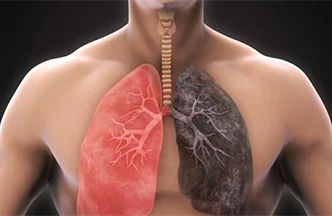
Interstitial Lung Disease (ILD) encompasses a group of disorders that affect the interstitium, the tissue and space around the air sacs of the lungs. These diseases lead to inflammation and scarring (fibrosis) of lung tissue, which can severely affect lung function and breathing. Common causes of ILD include long-term exposure to harmful substances (like asbestos or silica), autoimmune diseases, and certain medications. Symptoms often include shortness of breath, a persistent dry cough, and fatigue.
At Dr. Singal's Comprehensive Care Clinic, Dr. Namrata Singal, Senior Consultant Pulmonologist, specializes in diagnosing and managing interstitial lung disease. Our focus is on providing effective treatment plans tailored to each patient's needs, aiming to improve lung function and quality of life.
Common symptoms include progressive shortness of breath, especially during physical activity, a persistent dry cough, fatigue, unexplained weight loss, and clubbing (widening) of the fingers or toes. If you experience these symptoms, it's important to seek medical attention.
Diagnosis typically involves a thorough medical history, physical examination, and various tests, including chest X-rays, high-resolution CT scans, pulmonary function tests, and sometimes lung biopsies to determine the cause and extent of lung damage.
Treatment for ILD varies depending on the specific type and severity of the disease. Options may include corticosteroids and other immunosuppressive medications to reduce inflammation, oxygen therapy to assist with breathing, pulmonary rehabilitation, and in some cases, lung transplantation for advanced disease.
While not all forms of ILD can be prevented, reducing exposure to known risk factors (such as harmful dust, chemicals, and smoking) can help lower the risk. Regular health screenings can also aid in early detection and management.